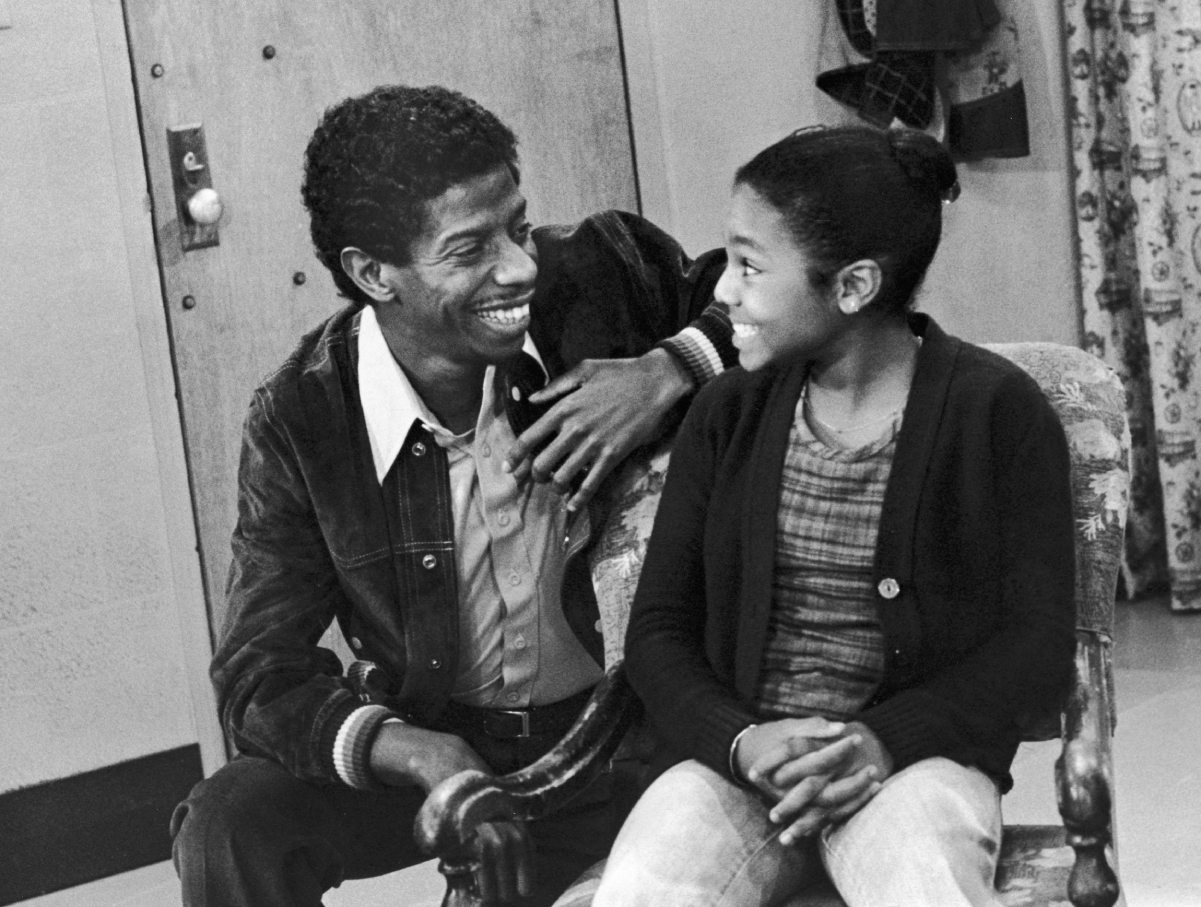‘Good Times’: The $2,000 Bet ‘J.J. Evans’ Actor Jimmie Walker Had Going With Producer Norman Lear – Over 1 Script Line
The popular situation comedy Good Times enjoyed great ratings in the 1970s. According to its executive producer Norman Lear, the viewers were the only ones enjoying the show that he called “an agony” to produce.
Lear wrote in his memoir Even This I Get to Experience that if it wasn’t one thing with some of the show’s cast, it was another.
In one instance, Jimmie Walker who portrayed viewer favorite J.J. Evans had a gut feeling about a line in a show script that Lear vehemently was against.
A bet ensued, and here’s what happened.

Why Lear called ‘Good Times’ an ‘agony’
The 1970s were the years of television comedies with memorable catchphrases. There was Fonzie on Happy Days with his “Heyyyyy!,” Arnold Jackson on Diff’rent Strokes with “What’chu talkin’ ’bout, Willis?,” and of course, J.J. Evans’ “Dy-no-mite!”
The one-worded line drove the Good Times studio audience wild with laughter, but the same could not be said for Walker’s cast mates, particularly Esther Rolle and John Amos who played his parents Florida and James Evans.
As much as the young actor was pulling in the ratings and audience for the comedy, his two co-stars simply could not bear him, and Lear stated that this friction made the set a difficult place to work.
“Good Times, while it was rarely out of the top 20 and spent a lot of time in the top 10, became an agony to produce,” Lear wrote. “J.J.’s popularity with the largely Black audiences that came to the tapings was a friendly, joyful distraction to the company, but a great annoyance to our stars. Frankly, they hated it.”
The Jimmie Walker line that led to the bet
Walker explained in a conversation with the Television Academy Foundation that for Lear, there was no such thing as a laugh for a laugh’s sake. “For me, yes; for Norman, no.” Saying that “Dynomite!” had become “the bane” of Lear’s existence, another battle reared its head when Walker insisted on using a line in one specific episode.
In the show, J.J. woos a friend of his teenaged sister Thelma played by Bern Nadette Stanis while the two are doing their French homework.
“[J.J.] wanted to go out with Thelma’s friend,” he began. “So I’m there and I’m just sitting around, you know.”
Walker described the words J.J. used to pursue the young lady: “You know, ‘Eiffel Tower,’ ‘beret,’ trying to do my French thing, trying to get in there.”
At the end of his romantic discourse, Walker said, “I come up with a thing and I loved it. It was, ‘Alright, my dear, I’ll see you at the Kool and the Gang concert on Friday night, que sera sera, bon ami, and cognac.'”
The final word, ‘cognac,’ was said by Walker with great emphasis and verve as “cone-YAKKK.”
Except Lear hated it. “Norman says, ‘What does that mean?’ I go, ‘Norman, it’s an energy of the moment thing. You know, because you’re doing the French thing and then you lay the ‘cone-YAK’ on them and that takes it over.’ He says, ‘That’s the stupidest thing I’ve ever seen. No. We’re not doing it.'”
The bet between Norman Lear and Jimmie Walker – and who won
Walker told Lear he would bet him that it would work. What began as a $20 wager between the two men grew to a pot of thousands of dollars among the cast and crew.
“There’s like $2000 on this cognac line,” Walker said. “Now the show is secondary because everyone is waiting. The crew is with me.”
The comedian said that he appealed before the episode to the show’s camera operator for a close-up. “I said, ‘Vito, when this cognac thing comes, warm me up, baby. I wanna be right there, man!’ So he warmed me up, I did it: ‘cone-YAK’ destroyed! Total kill monster line.”
The actor gave Lear kudos for admitting at the cast’s meal together after the show that he had been in the wrong – and for validating Walker in front of the cast and crew.
“We go up to eat,” he said. “And Norman Lear stands up. He says, ‘You know, there was a line in this show that I will go to my dying day thinking was the worst, stupidest line I’ve ever heard of in my life. But it worked tonight. And I will give Jimmie Walker credit where I will never doubt his energy-of-the-moment philosophies again.”
Lear proved he was teachable and never again questioned Walker’s “energy of the moment” hunches.


